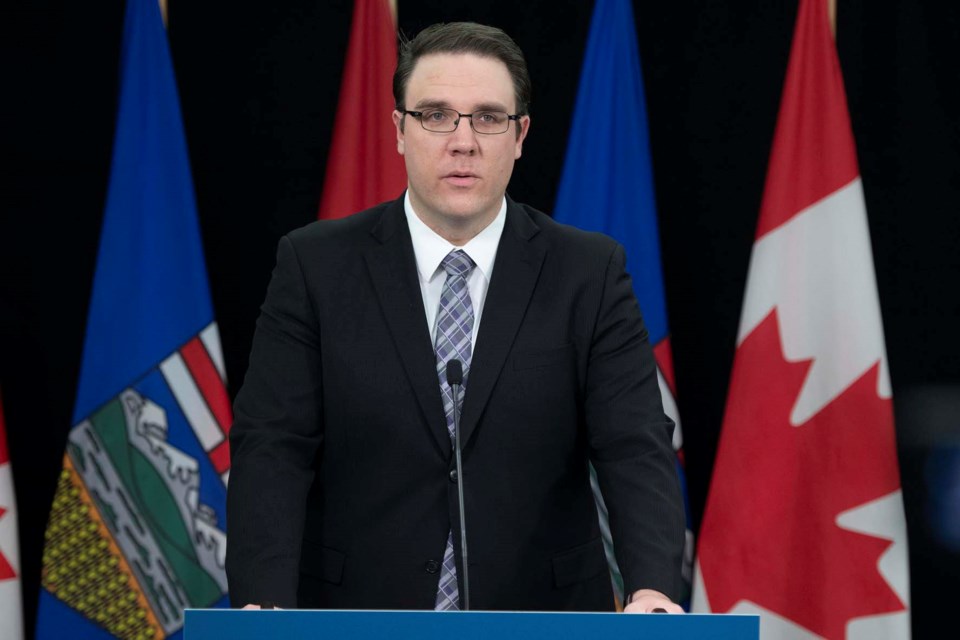Families of children with disabilities are waiting years to get needed supports in Alberta, and thousands say the provincial program is now “inadequate and unresponsive,” a report finds.
A report from non-profit advocacy organization Inclusion Alberta finds families face a three year wait to access the full range of services after applying to the Family Supports for Children with Disabilities (FSCD) program.
Half of the families surveyed said delays and barriers within FSCD led to missed developmental opportunities, and ten per cent said it interfered with their child’s school attendance.
“This wait has been hard I waited long enough to be able to afford to get my daughter diagnosed. She has Autism, ADHD severe anxiety,” a family member quoted in the report said. “I don’t even really know what to say here I’m so overwhelmed and burning out having to do everything on my own to support her and her needs.”
For families in rural Alberta, difficulty accessing required funding, services, and programs is even more disruptive. Seventy-two per cent of rural respondents reported negative impacts due to the lack of supports in their area, compared to 60 per cent of respondents in Alberta’s major cities
Trish Bowman, CEO of Inclusion Alberta, said the pay rates supplied through FSCD aren’t sufficient for families to attract and retain staff to support either their adults or child that has a disability.
This means rural families are spending long hours on the road travelling for medical appointments and visits to specialists, and the mileage rate they receive from the province hasn’t been updated in years.
“The additional expenses of being rural aren't accounted for in any way through what's currently available,” Bowman said.
If clinicians are willing to come out to provide consultation and programming, they’re not compensated for travel time.
“A lot of clinicians are not prepared to do that. Or the money has to come out of what is supposed to be actual time with your child,” Bowman said.
Bowman said the problem isn’t necessarily with how the programs are designed. If families are given the supports and services they need, “they work well.”
“What the problem is, is accessing them. There needs to be recognition and adjustment for costs of living and inflation, looking at how much they're going to pay families to assist with the extraordinary costs around travelling distances for medical appointments, parking, hotels, all of that. Those are expenses most families in urban communities aren't incurring.”
Inclusion Alberta’s report calls on the province to increase funding to cover inflation over the last two years, reduce wait times, address the gaps in services for rural and Indigenous communities, and shift policies to focus on outcomes of inclusion.
“I think there needs to be recognition that [FSCD] is set up well, it just needs to be adjusted in a way that makes it work for families, and it needs to be adequately funded,” Bowman said.
Ashley M. Stevenson, press secretary for Seniors, Community and Social Services, said funding levels for FSCD were maintained in the 2024 budget “to make sure those currently receiving services can continue to access the critical supports they need,” and funding for the Persons with Developmental Disabilities (PDD) program increased by $45 million.
“The government recognizes that the demand for the FSCD and PDD programs remains high and the department is working hard to connect families to services as soon as possible,” Stevenson said.
“It’s important to note that the PDD and FSCD programs were designed in a much different time. Alberta’s growing population, coupled with an increase in the prevalence of disability, has put increased pressure on these programs to keep pace. This is why the department is working to modernize these programs to ensure it continues to work for Albertans now and in the future,” she said.
Bowman noted that while Alberta’s population and the cost of living have increased substantially, “we know last year there was no increase to the FSCD budget.
“It only stands to reason that if you have more families needing support, and you don't have any more money, there's going to be less support available. And certainly, that's what families are experiencing right now.”
Stevenson said Alberta’s government is committed to supporting Albertans with disabilities and is making investments in several programs and advocacy services.




